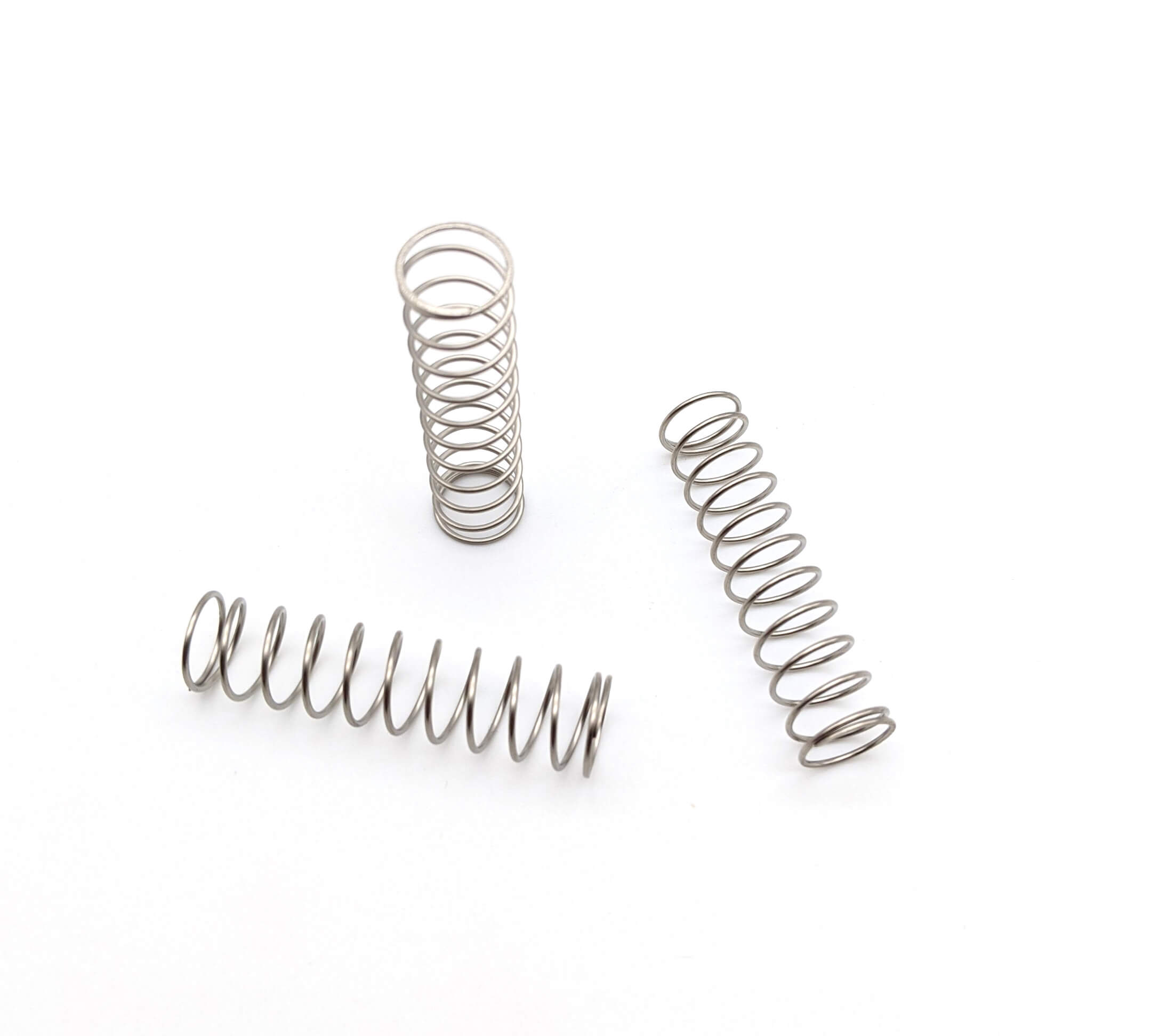Get unique, complex parts easily. No matter your requirements, Chaoyi Spring creates hard-to-produce coil springs and wire forms.
Let us help you create the custom wire form you need, from S-hooks and J-hooks to utility hooks and more.
We work closely with customers across a wide range of industries, helping them design and manufacture made-to-order parts.
Why choose Chaoyi Spring? We prioritize customer-focused collaboration, modern equipment and the latest technology to make your parts per print.
Find the information and guidance you need, from measuring a spring to learning about materials, placing an order and much more.
Garage tension springs, those often overlooked components, play a crucial role in the smooth and reliable operation of your garage door. These powerful springs, typically found in pairs, provide the


Garage tension springs, those often overlooked components, play a crucial role in the smooth and reliable operation of your garage door. These powerful springs, typically found in pairs, provide the counterbalance needed to lift and lower the heavy door with ease. While they might seem like a simple part, garage tension springs are essential for the safety and longevity of your garage door system. In this article, we'll delve into the world of garage tension springs, exploring their types, functions, and the importance of maintaining them.

Garage tension springs are coiled springs made from high-quality steel, designed to withstand the constant stress of lifting and lowering your garage door. They are usually located above the door on either side of the track, carefully tensioned to balance the weight of the door. These springs aren't just about convenience, they're crucial for safety. Imagine trying to manually lift a heavy garage door! Without tension springs, the door would be incredibly difficult to operate, and the risk of injury or damage to the door itself would be high. These springs make it a breeze to open and close your garage door.
There are two main types of garage tension springs: torsion springs and extension springs.
Torsion springs are the most common type found in modern garage doors. They are wound around a metal shaft, and as the door is lifted, the shaft rotates, winding the spring tighter. The stored energy in the spring helps lift the door, making it feel lighter.
Torsion springs offer several advantages: they're more powerful and can handle heavier garage doors, they're less prone to wear and tear, and they offer a smoother operation. They also tend to be more compact, taking up less space in the garage.
Extension springs, as the name suggests, extend when the garage door is opened. They're typically attached to the door itself and to the track. These springs are generally less expensive than torsion springs, but they're also less durable. Extension springs are more prone to breakage and require more frequent maintenance.
While garage tension springs are designed to be durable, they do wear out over time. This is why regular maintenance is critical. Ignoring spring maintenance can lead to serious problems:
Safety Hazards: A broken spring can cause the door to fall suddenly, potentially causing injury or damage.
Door Damage: If a spring is not working properly, it can strain other parts of the garage door system, leading to premature wear and tear.
Increased Energy Costs: A poorly balanced door requires more effort to open and close, which can strain your garage door opener and increase energy consumption.
Here are some telltale signs that your garage tension springs need attention:
Unusual Noises: If you hear unusual noises, such as clicking, popping, or groaning sounds when operating your garage door, it could be a sign of spring fatigue.
Door Unbalance: If the door feels heavy to lift, or if it seems to be unevenly balanced, a spring might be failing.
Spring Sagging: If you notice that the spring itself is sagging or that there is an apparent gap between the coils, this is a sure sign that it needs replacement.
Visible Damage: Look for signs of rust, corrosion, or any visible damage to the spring. This is a safety concern and requires immediate attention.
Garage tension springs are under high tension and can be dangerous if not handled properly. It's best to leave spring repair or replacement to a qualified garage door technician. They have the expertise and specialized tools to safely handle these springs. A professional can also inspect your entire garage door system to ensure everything is functioning properly and identify any other potential issues.
Garage tension springs are essential components that keep your garage door operating smoothly and safely. Regular maintenance, including spring inspection and lubrication, is key to extending the life of your springs and preventing costly repairs. If you notice any signs of spring wear or damage, don't delay – call a professional garage door technician for prompt and safe repair. By taking care of your garage tension springs, you'll ensure the safe and reliable operation of your garage door for years to come.
Remember, garage tension springs are often overlooked, but their impact on your garage door's functionality and safety is undeniable. Taking the time to understand these springs, their maintenance needs, and the signs of potential issues will help you keep your garage door working efficiently and protect yourself and your family from potential hazards. It's a small investment that can go a long way in ensuring your garage door is a reliable and safe part of your home for years to come.
Browse some of the custom wire forms and springs that we manufacture. Don’t see what you need? We specialize in made-to-order products that meet your application requirements.
Visit Our GalleryNeed a custom wire form or coil spring? We make it work. Fill out the contact form and a representative will respond within 1 business day. If you have a PDF or CAD file, you can submit to request a quote.